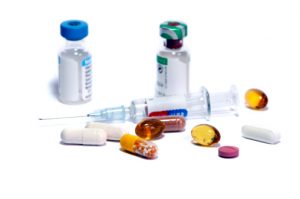
Co-director of the research Dr. Brent Muhlestein said, “Our research examined the potential cardiovascular risks associated with generally healthy men who use testosterone supplements to normalize their levels and found no increase in those risk factors. In fact, testosterone therapy in this population was shown to reduce the risk of heart attack, stroke, and death, when compared to those men who weren’t taking testosterone supplementation.”
Earlier, the FDA implemented that testosterone therapies be labeled to reveal a possible increased risk of heart attack or stroke. The FDA has reported that testosterone therapy use has grown among older men from 1.9 million men in 2009 to 2.3 million men in 2013.
Dr. Muhlestein added, “This particular study provides assurances to physicians and patients that using testosterone replacement therapy in a generally healthy population of men over the age of 50 to normalize levels doesn’t increase a patient’s risk of a heart attack or stroke, and actually shows a reduction in those risks.”
Testosterone therapy does not increase heart attack risk in men: Previous study
A previous study also found that testosterone therapy does not increase the risk of heart attack in men. For that study, over 25,000 older men on testosterone therapy were examined.
The study, conducted by researchers at University of Texas Medical Branch at Galveston, looked at 25,420 men over the age of 66 who were treated with testosterone therapy for up to eight years. Lead author of the study Jacques Baillargeon said, “Our investigation was motivated by a growing concern, in the U.S. and internationally, that testosterone therapy increases men’s risk for cardiovascular disease, specifically heart attack and stroke. This concern has increased in the last few years based on the results of a clinical trial and two observational studies,” he said. “It is important to note, however, that there is a large body of evidence that is consistent with our finding of no increased risk of heart attack associated with testosterone use.”
Not only did the findings of the study reveal that men on testosterone therapy did not have an increased risk of heart attack, but that even men with a higher probability of cardiovascular disease also experienced a lower risk of heart attack in comparison to men of same age not using testosterone therapy.
Baillargeon concluded, “This is a rigorous analysis of a large number of patients. Our findings did not show an increased risk of heart attack associated with testosterone use in older men,” he said. “However, large–scale, randomized clinical trials will provide more definitive evidence regarding these risks in the coming years.”